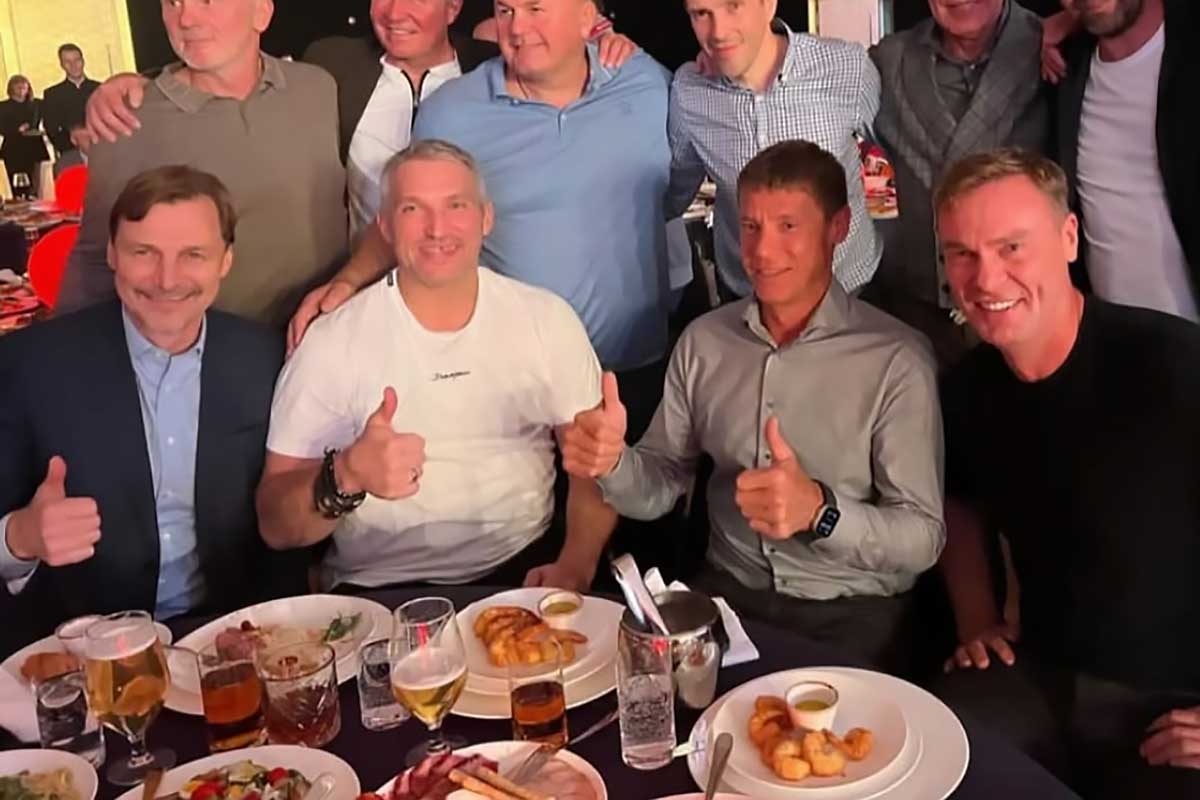The Washington Capitals of the late 2000s were led by a group of rising stars known as the Young Guns. Alex Ovechkin, then in his early 20s, was the leader of the pack, racing out to superstardom as soon as he set foot onto NHL ice during the 2005-06 campaign.
While Ovechkin, Nicklas Backstrom, Alex Semin, and Mike Green shouldered most of the team’s scoring, the Capitals made sure to supplement them with a supporting cast of well-known veterans. Two of whom, Sergei Fedorov and Viktor Kozlov, served as crucial mentors to Ovechkin and the team’s other young Russian players.
“Feds, Kozzy, those guys, help us out big time because we was teenagers, right?” Ovechkin told Bruce Boudreau and Jeff Marek on the Hockey Lifers Podcast. “They played in NHL so long so they knew the rules, they knew life.”
Kozlov, then 32, arrived in DC first through free agency, signing a two-year contract with the Capitals during the 2007 offseason. Before joining the Capitals, he had played 12 seasons in the NHL with the San Jose Sharks, Florida Panthers, New Jersey Devils, and New York Islanders.
Fedorov, who had just turned 38 and was already one of the greatest players in NHL history, was dealt to the Capitals at the 2008 trade deadline by the Columbus Blue Jackets in exchange for prospect defenseman Theo Ruth. The following summer, Fedorov signed a one-year, $4 million contract to stick with Washington for one more season.
The elder statesman pushed the young Capitals to their first playoff series victory in the Ovechkin era after he scored the game-winning goal against the New York Rangers in Game 7 of the 2009 first round.
“He’s our leader,” Ovechkin said after the game. “He’s our best guy in the locker room. He showed it. He’s our best guy. He has more experience than anybody in this locker room. He knows how to play like that. He just shows his leadership.”
While the two did help take the Capitals to another level when they were on the ice, Ovechkin also credits them for guiding him off the ice. When they arrived, he was just 22 years old and had yet to experience playoff hockey as the Caps did not qualify for the postseason in either of his first two seasons in the league.
“I never forget, we play against Atlanta, and we went to Morton’s Steakhouse, and me and Semin and I think Varly (Semyon Varlamov), we were joking around like, ‘You old. What are you doing? Stop playing hockey.’” Ovechkin said. “And, Kozzy, tell us, ‘Hey, I know it’s funny, but enjoy your moment because time flies.’ Right now, I’m 40, and I’m still playing, but back then, I was like Lappy (Hendrix Lapierre), right now on our team. Those moments fly so fast, and I remember he’s like, ‘Enjoy the moment, time fly, and every day take what you can best from those moments.’”
Some aspects of that off-the-ice relationship were very noticeable in a hilarious 2008 interview that Ovechkin, Semin, Fedorov, and Kozlov did with Comcast Sportsnet’s Lisa Hillary.
Neither Fedorov nor Kozlov stuck around in the NHL after the 2008-09 season, which saw the Capitals eliminated from the second round of the playoffs by the Pittsburgh Penguins in Game 7. Fedorov returned to Russia, where he played three seasons in the KHL for Metallurg Magnitogorsk before transitioning to a front office and later head coaching role with CSKA Moscow.
Kozlov followed a similar path, playing five more seasons professionally in the KHL before becoming an assistant coach for Metallurg and later the head coach of Salavat Yulaev Ufa, a position he still holds today.
Ovechkin would later use what he learned from the two and take on the inverse role, serving as a mentor and confidant for young Russian and Belarusian players who arrived in DC after him. The long list of names includes Varlamov, Dmitry Orlov, Evgeny Kuznetsov, Stanislav Galiev, Dmitrij Jaskin, Ilya Samsonov, Aliaksei Protas, Alex Alexeyev, Ivan Miroshnichenko, Bogdan Trineyev, and Ilya Protas.

